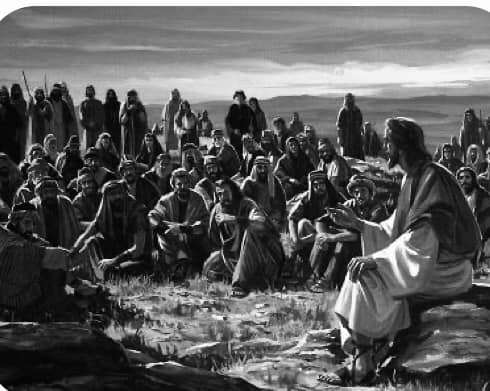201 total views

6th Sunday C
Jer 17:5-8
The reading from Jeremiah emphasizes the importance of trusting in Yahweh using three key elements of Hebrew poetry. First, it employs nature imagery, comparing those who trust humans (v5) to a withering bush in the desert, while those who trust Yahweh (vv7-8) are likened to a well-rooted tree near water, echoing themes found in the psalms (Ps 1; 52:10).
Secondly, the passage features antithetical parallelism, contrasting the outcomes of two types of trust. This is similar to the proverbs that highlight industriousness versus sloth (e.g., Prov 10:4). Jeremiah expands on this idea, illustrating the two kinds of “trusting” individuals and concluding that deep-rooted confidence in God leads to peace.
Finally, the text employs a blessings and curses formula, akin to Deuteronomy’s framework, conveying the seriousness of fortune and misfortune in ancient times. While it has become more literary over time, it still implies strong future consequences.
1 Cor 15:12, 16-20
The Christians in Corinth questioned the resurrection, influenced by Greek thought that viewed the soul as the only immortal part, leading them to dismiss the idea of a physical resurrection. Paul responds extensively in 1 Corinthians 15, addressing both the fact of resurrection (vv1-34) and the manner (vv35-58). He argues that if there is no resurrection, then Christ’s resurrection—central to Christian faith—cannot be upheld (vv12f). Without it, faith loses its meaning; Christians remain in their sinful state, and those who have died face a hopeless end. Paul contrasts Christian hope with vague Greek beliefs, stating that without the resurrection, Christians are to be pitied. However, he affirms that Christ has indeed risen, serving as the first example of what lies ahead for his followers (v20).
Lk 6:17, 20-26
The Lucan blessings and woes from Jesus’ sermon on the plain parallel Matthew’s sermon on the mount in abbreviates form (Mt 5-7). But Luke’s are more distinctly oriented towards social issues and makes no explicit attempt to “spiritualize” the beatitudes as does Matthew. He highlights the plight of the poor, hungry, grieving, and hated, assuring them their circumstances will change in the reign of God, which includes both present and future realities (v23). The “woes” address the rich and comfortable, challenging them to recognize true Christian values. This reflects Luke’s focus on the divide between the “haves” and “have-nots,” warning that God’s justice will ultimately prevail. The teachings inspire Christians to support the marginalized and remain steadfast in their faith, as emphasized in the first reading.
The blessings and woes continue the Hebrew genre of blessings and curses, described in the above comment on the Jeremiah passage and Psalm 1.
Today’s readings remind us, through vivid imagery from nature, that God is still present in a troubled world. It is unwise to prioritize human counsel, especially if it is influenced by evil. What truly matters is maintaining a God-centered life, to be truly be blessed, and which will ultimately not disappoint us, for Christ has triumphed over sin and death. Amen.


















